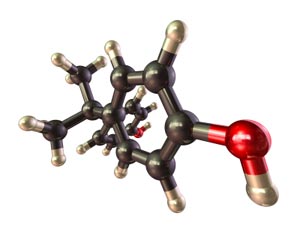 Good day to all Readers,
Good day to all Readers,
I was quite busy lately and didnt have much time to post new articles. Today i received email from Dr.Mercola. This is one of the articles from the famous Dr.Mercola. Read this !
Posted By Dr. Mercola | August 25 2010
A growing body of research links five of the most commonly used chemicals in the world to a host of ailments, including cancer, sexual problems and behavioral issues. Here's what CNN suggests you can do about them:
- BPA — Bisphenol A
BPA is used to make lightweight, clear, heat-resistant plastic. It's also used in epoxy resins.
A growing body of research suggests that BPA poses a potential cancer risk and may disrupt the extremely sensitive chemical signals in your body called the endocrine system.
To avoid it, buy stainless steel bottles and glass food storage containers. Switch to fresh or frozen vegetables instead of canned. If you buy plastic, check for the number on the bottom — if there is a number 7, assume the container contains BPA unless it explicitly says otherwise.
- Phthalates
This family of chemicals softens plastics. Phthalates are considered endocrine disrupters. Research has also shown phthalates disrupt reproductive development. Avoid shampoos, conditioners and other personal care products that list "fragrance" as an ingredient.
- PFOA — Perfluorooctanoic acid (also called C8)
PFOA is used to make Teflon and other nonstick and stain- or water-repellent products. PFOA causes cancer and developmental problems. You can reduce your potential exposure by using stainless steel or cast iron cookware. If you use nonstick cookware, do not overheat it — this releases toxic gas.
- Formaldehyde
Formaldehyde is an ingredient in resins that act as a glue in the manufacture of pressed wood products. It is a known human carcinogen, causing cancers of the respiratory or gastrointestinal tract.
Buying furniture free from formaldehyde eliminates much of the exposure you face from the chemical. If you have wood products containing formaldehyde, increase ventilation, reduce humidity with air conditioning or dehumidifiers and keep your home cool.
- PBDEs — Polybrominated diphenyl ethers
PBDEs are a group of chemicals used as flame retardants. Toxicology tests show PBDEs may damage your liver and kidneys and affect your brain and behavior. Try to find products without PBDE flame retardants and be sure to sweep up dust.



Your Body Probably Contains Over 200 Chemicals
Five Top Common Chemicals to Avoid …
What Else Can You do to Reduce Unnecessary Chemical Exposure to Your Family?